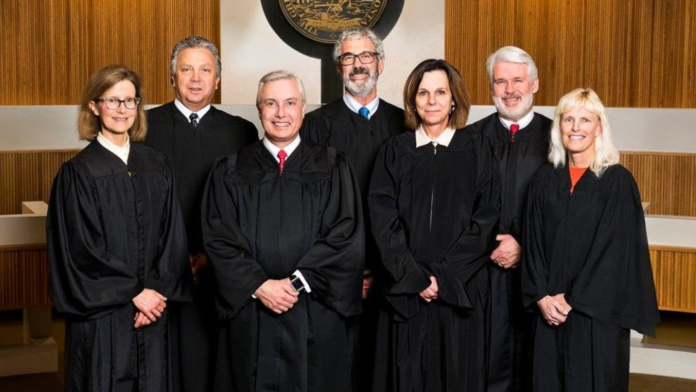In a 5-2 ruling, the Montana Supreme Court has given the green light for the Black Butte Copper Mine project to proceed, overturning a previous decision by a District Court that had revoked the mining permit. The mine, set to be constructed near White Sulphur Springs by Sheep Creek, has faced opposition primarily due to concerns about potential impacts on water quality downstream.
Environmental groups had filed a lawsuit in 2020, arguing that the Department of Environmental Quality (DEQ) had not sufficiently evaluated the environmental risks before granting the operating permit for the mine. Last year, Judge Katherine Bidegaray ruled in favor of the plaintiffs, criticizing the DEQ for inadequate analysis of potential environmental impacts. Bidegaray is currently running for a seat on the Montana Supreme Court.
However, the majority opinion from the Supreme Court, led by Justice Beth Baker, stated that DEQ had indeed followed legal procedures in issuing the permit. Justice Baker emphasized that DEQ’s decision was backed by extensive scientific studies, expert assessments, and public input, demonstrating a thorough evaluation process.
Tintina Montana had applied to develop the Black Butte Copper Mine in 2015, and after five years of review, DEQ issued the permit under the Montana Metal Mine Reclamation Act. Nancy Schlepp, vice president of communications for Sandfire Resources America, expressed readiness to commence Phase 1 of the project, which involves constructing surface facilities and an access road.
Sandfire America’s CEO, Lincoln Greenidge, hailed the Supreme Court’s decision as validation of their meticulous planning efforts to ensure environmental safety. He emphasized the extensive scrutiny the project underwent, spanning over 90,000 pages of documentation.
However, environmental groups, including Montana Trout Unlimited and Earthjustice, view the ruling as a setback in their efforts to protect the Smith River watershed. Despite the setback, they remain committed to challenging aspects of the project that they believe pose risks to the river’s integrity.
In response to the ruling, Jenny Harbine, an attorney with Earthjustice, highlighted their ongoing legal challenge regarding the mine’s dewatering scheme, signaling their determination to continue advocating for environmental preservation.
By: Montana Newsroom staff




